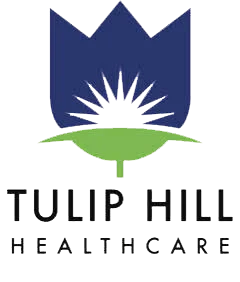Table of contents
Addiction Therapy Approaches

| Medically Reviewed By: Board-Certified Psychiatrist and Addictionologist |

| Clinically Reviewed By: Board Certified Clinical Social Worker |
Did you know that your insurance plan may cover medical detox?
Complete a free, confidential Verification of Benefits to learn more about what resources may be available to you.
Supporting Families Through Recovery
Get Family Support Now
We understand addiction affects the whole family. Our comprehensive family program helps rebuild trust and restore relationships.
Weekly Family Therapy Sessions
Educational Workshops
Support Groups
Communication Skills Training
Addiction can feel like an unbreakable cycle—one that affects not only the individual but also their family, health, relationships and future. Whether it’s drugs, alcohol or both, substance abuse takes hold in deeply personal ways. But recovery is possible and it starts with the right therapeutic approach.
At Tulip Hill Healthcare, we specialize in addiction therapy for drug and alcohol dependency, combining evidence-based treatment with compassionate, personalized care. Our licensed professionals use a range of proven psychological, behavioral, and holistic strategies to help clients not only stop using but also understand the deeper roots of their addiction.

What Is Addiction Therapy?
Addiction therapy is a structured form of treatment that helps individuals overcome the emotional, behavioral, and psychological causes of substance use disorders through various therapeutic interventions. Addiction therapy works by identifying triggers, developing coping mechanisms, and restructuring thought patterns that lead to substance use. Through regular sessions with trained therapists, individuals learn to understand their addiction, develop healthy behaviors, and build a strong foundation for recovery.
Types of Addiction Therapy Approaches
There are several types of addiction therapy approaches used to treat substance use disorders. These include behavioral therapies, motivational counseling, trauma-focused interventions, family therapy, and holistic options. While some people respond well to one method, many benefit from a combination.

Behavioral Therapy for Addiction
Behavioral therapy is one of the most common forms of addiction treatment. It focuses on identifying negative behaviors linked to substance use and replacing them with healthier habits. This approach helps clients understand how certain actions, environments, or thought patterns lead to drug or alcohol use and how to interrupt that cycle. At Tulip Hill Healthcare, our therapists guide clients in developing skills to manage triggers, avoid high-risk situations, and reinforce positive decision-making. This approach is effective in both early recovery and relapse prevention, offering clear strategies for long-term success.
Cognitive Behavioral Therapy (CBT)
Cognitive behavioral therapy and substance abuse treatment go hand in hand, making CBT one of the most widely used and effective approaches in addiction recovery. Cognitive behavioral therapy for addiction treatment focuses on identifying and changing negative thought patterns that contribute to substance abuse behaviors.
For example, someone might believe they can’t cope with stress without alcohol. CBT challenges that belief and replaces it with practical tools such as relaxation techniques or communication strategies that help the individual stay in control without using. Over time, clients build confidence in their ability to face life’s challenges without turning to substances. CBT is particularly effective in treating co-occurring disorders like anxiety and depression alongside addiction.
Dialectical Behavior Therapy (DBT)
Dialectical Behavior Therapy for addiction is especially helpful for individuals who struggle with emotional regulation and intense interpersonal conflicts. Originally developed to treat borderline personality disorder, DBT has become an effective tool in addiction treatment particularly when trauma or mental health disorders are involved.
DBT focuses on four core modules: mindfulness, distress tolerance, emotion regulation, and interpersonal effectiveness. These skills are particularly valuable for individuals in recovery, as they provide concrete strategies for managing difficult emotions without turning to substances. The mindfulness component helps patients stay present and aware of their thoughts and feelings, while distress tolerance skills provide healthy alternatives to substance use during times of crisis.
The interpersonal effectiveness module of dialectical behavior therapy for addiction helps patients improve their relationships and communication skills, which are often damaged by substance abuse. By learning to navigate relationships more effectively, individuals can build stronger support systems that contribute to long-term recovery success.

Motivational Interviewing (MI)
Motivational Interviewing (MI) is a client-centered technique that focuses on enhancing internal motivation to change. Many people entering treatment are unsure about quitting or feel conflicted. MI helps resolve that ambivalence about recovery. Through open-ended questions and guided conversation, therapists help clients explore their values, goals, and readiness for change. Instead of confronting or lecturing, MI encourages clients to find their own reasons for pursuing sobriety. This self-discovery process often leads to stronger commitment to recovery and better treatment outcomes.

Medication-Assisted Treatment (MAT)
Medically-assisted treatment (MAT) combines behavioral therapy with FDA-approved medications to treat substance abuse disorders. This approach is particularly effective for opioid and alcohol addiction therapy, where medications can help reduce cravings and withdrawal symptoms while patients engage in counseling and behavioral therapies.
MAT is not replacement therapy but rather a comprehensive approach that addresses both the physical and psychological aspects of addiction. When combined with substance abuse counseling techniques, MAT can significantly improve treatment outcomes and reduce the risk of relapse.
Family Therapy
Addiction affects not just the individual but entire family systems. Family therapy recognizes this impact and works to heal relationships while creating a supportive environment for recovery. This approach addresses communication patterns, boundary issues, and enabling behaviors that may inadvertently contribute to continued substance abuse.
Through family therapy sessions, family members learn about addiction as a disease, develop better communication skills, and establish healthy boundaries. This therapeutic approach also helps address any family trauma or dysfunction that may have contributed to the development of addiction, creating a more stable foundation for long-term recovery.
Eye Movement Desensitization and Reprocessing (EMDR)
For individuals whose addiction is rooted in trauma, Eye Movement Desensitization and Reprocessing (EMDR) can be a powerful therapeutic tool. EMDR helps process traumatic memories that may contribute to substance abuse, allowing individuals to heal from past experiences that fuel their addiction. This evidence-based approach uses bilateral stimulation, typically through guided eye movements, to help the brain process traumatic memories more effectively. By addressing underlying trauma through EMDR, patients often find that their urges to use substances decrease significantly, as they no longer need substances to cope with unresolved traumatic experiences.

Holistic and Alternative Therapies
Holistic approaches to addiction therapy recognize that recovery involves healing the whole person—mind, body, and spirit. These therapies complement traditional treatment methods and may include activities such as yoga, meditation, art therapy, music therapy, and acupuncture. While these approaches may not be primary treatments, they provide valuable stress relief and help individuals develop healthy coping mechanisms.

12-Step Facilitation Therapy
12-Step facilitation therapy helps individuals engage with 12-step programs like Alcoholics Anonymous or Narcotics Anonymous. This approach doesn’t require belief in any particular spiritual system but rather helps patients utilize the support and structure that 12-step programs provide. This therapy focuses on the first three steps of the program and helps individuals develop the foundation needed to fully engage with the 12-step process. Research shows that active participation in 12-step programs can significantly improve long-term recovery outcomes.

What is Addiction Recovery?
Addiction recovery is an ongoing process of healing and growth that extends far beyond simply stopping substance use. Recovery involves developing new life skills, rebuilding relationships, addressing underlying mental health issues, and creating a meaningful, fulfilling life without substances. It’s a journey that requires commitment, support, and often professional guidance through various addiction therapy approaches.
Recovery looks different for everyone, but it generally involves several key components: achieving and maintaining sobriety, developing healthy coping strategies, rebuilding damaged relationships, addressing co-occurring mental health conditions, and creating a sense of purpose and meaning in life. The process is rarely linear and may involve setbacks, but with proper support and treatment, long-term recovery is achievable.
What We Treat at Tulip Hill Healthcare
Addiction can stem from a variety of substances, each with its own challenges. At our facilities, we specialize in treating a wide array of addictions. The addictions we treat all come with different challenges, but regardless, we are committed to helping each individual overcome their addiction and achieve lasting recovery. Here are some of the substances that we treat at Tulip Hill Healthcare.
Alcohol
Opioids
Cocaine

Methamphetamine

Prescription medications

Other controlled substances
Why Choose Tulip Hill Healthcare?
With so many alcohol treatment centers Nashville TN and KY offer, choosing the right one can feel overwhelming. Here’s why Tulip Hill Healthcare’s network of rehab centers should be your top choice.

Holistic Care
Tulip Hill Healthcare addresses both the physical and emotional aspects of addiction, ensuring comprehensive recovery. At all of our alcohol rehab centers Nashville TN and KY have, patients receive personalized care plans tailored to their unique needs.

Compassionate Support
Addiction can be a difficult journey for both the individual struggling with it and their loved ones. When it comes to alcohol addiction, we know the road to recovery is rarely a straight line. At each of our rehab centers, we understand the importance of providing compassionate support throughout this journey.

Convenient Locations
Located in Tennessee and Kentucky, Tulip Hill Healthcare enables access to care close to home for individuals in the Southeast region. Whether you’re looking for alcohol treatment Nashville TN offers, alcohol PHP in Louisville, or medical detox in Murfreesboro, there’s a facility near you that can accommodate you and your recovery goals.

Focus on Long-Term Recovery
Through aftercare and relapse prevention programs, our team supports individuals long after completing their primary treatment course. By creating a safe, supportive environment for healing, Tulip Hill Healthcare stands out as a leader in alcohol addiction treatment. You’ll notice walking into our drug and alcohol rehab centers means walking into a world of luxury, serenity, and recovery in TN and KY.
Tulip Hill Healthcare Drug and Aalcohol Rehab Centers
Frequently Asked Questions
What is the most effective therapy for addiction?
While no single therapy works for everyone, Cognitive Behavioral Therapy for addiction treatment is one of the most effective, especially when combined with other techniques like DBT, MI, or MAT.
How long does addiction therapy typically last?
Therapy length varies based on individual needs, but most programs recommend at least 90 days of intensive treatment followed by ongoing outpatient or aftercare support.
Can addiction therapy be done online?
Yes, many programs now offer virtual addiction therapy, including telehealth counseling, group sessions, and even online substance abuse counseling techniques. This can be especially helpful for individuals with limited access to in-person care.
Is group therapy better than individual therapy for addiction?
Both are effective. Individual therapy provides personalized care, and the privacy needed to address sensitive issues, while group therapy offers peer support, shared experiences, and opportunities to practice new social skills.. A mix of both often works best.




